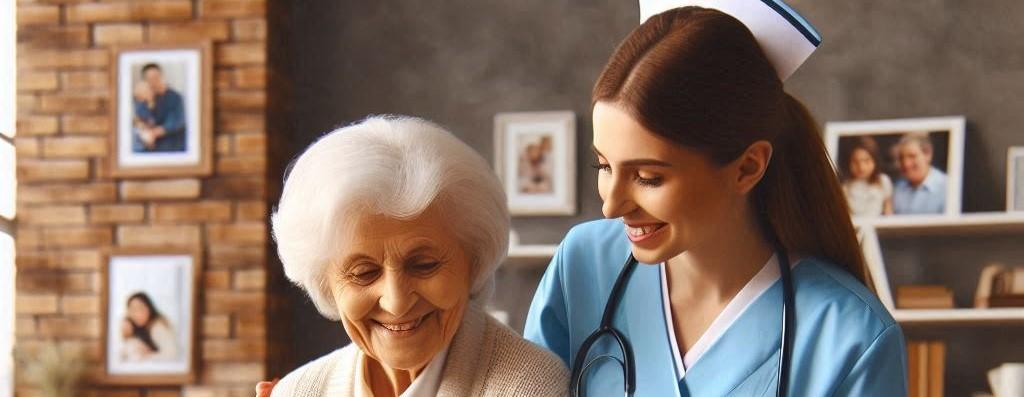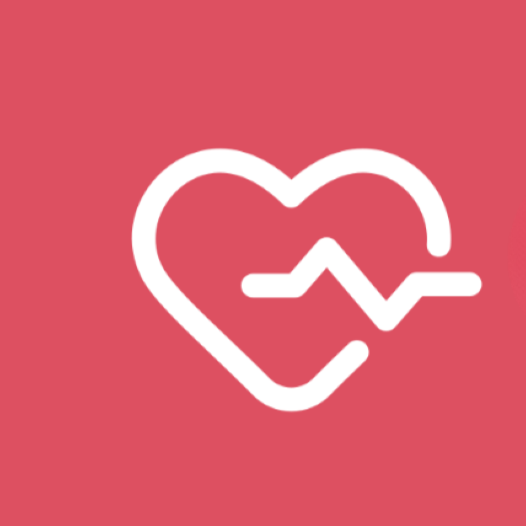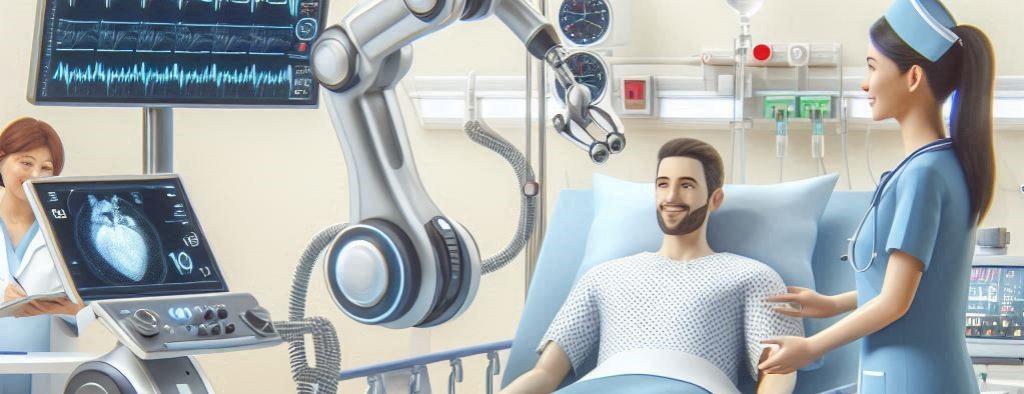Coronary Artery Bypass Grafting (CABG) surgery is a life-saving procedure meant to improve blood flow to your heart. If you’ve undergone or are preparing for this surgery, knowing what it’s about is crucial.
It’s when surgeons take a part of a blood vessel from another place in your body and use it to reroute blood around a blocked coronary artery. Despite the benefits, it’s a major surgery and its impact isn’t just physical—it’s a significant emotional journey, too.
After surgery, you can face a host of challenges. Physically, there’s wound healing, pain management, and regaining strength. Emotionally, feelings such as vulnerability, fear of recurring heart issues, or dealing with lifestyle changes can emerge.
It’s essential not to underestimate the mental aspect of post-op life; it’s as vital to your healing as the physical. This is why a support system is important for cabg surgery recovery.
Comprehensive care doesn’t stop in the operating room. It spans your entire recovery period—a proactive, support-filled approach is vital here. As you embark on this critical phase, a robust support system becomes the backbone of effective recovery, offering encouragement, assistance, and the guidance needed to navigate the every day while you heal.
You can check out this similar post, “How To Mentally Prepare For Cabg Heart Bypass Surgery“.
The Role of Support Systems During Recovery

Recovery from CABG surgery isn’t just about physical healing; it encompasses emotional well-being, too. Health professionals know why a support system is important for cabg surgery recovery. A strong support system is CRUCIAL in this journey. When I talk about a ‘support system,’ I refer to the network of friends, family, healthcare providers, and sometimes even peers going through similar experiences.
The emotional backbone such a system provides cannot be overemphasized. The road to recovery from heart surgery can be daunting, and it’s NORMAL to feel vulnerable. Support systems step in to offset loneliness and the risk of depression, which unfortunately, are not uncommon after major surgery.
From a practical standpoint, having people to lean on makes a big difference. This help comes in many forms: ensuring medication is taken on time, providing transportation to doctor appointments, or assistance with daily activities. These may seem like small tasks, but they form the bedrock of a smooth recovery process.
Adherence to treatment plans is another crucial piece of the puzzle. Often, recovery involves multiple medications, lifestyle changes, and rehabilitation therapy.
A support system acts as a reinforcement mechanism, reminding the patient of the importance of following medical advice and helping them stay on track. This is another reason why a support system is important for cabg surgery recovery.
Family, Friends, and Peer Support: The Recovery Pillars

After coronary artery bypass grafting surgery, affectionately known as CABG, your world changes significantly. You might find yourself surrounded by medical professionals, each playing a critical role in your recovery. However, the influence of family, friends, and peers is just as pivotal. Let me emphasize: their support is a cornerstone in the journey to full recovery.
Family members and friends bring a unique kind of medicine to the recovery process – emotional comfort. This isn’t the kind a doctor prescribes, but it’s just as essential. They’re the familiar faces that spark joy and offer a shoulder when the going gets tough. They’re instrumental in reminding you that you’re not battling post-surgery challenges alone.
There’s also a wealth of good that comes from connecting with those who’ve walked the path you’re on now. Peer support groups can be invaluable. These aren’t just gatherings of individuals sharing stories; they’re sessions where friendships are forged, tips are exchanged, and solace is found.
The testimony of patients who’ve accessed a sturdy support network often highlights fewer complications and a more positive outlook during their recovery. One thing I’ve noticed is the power of shared experience. It’s comforting and enlightening to talk to someone who understands the language of your journey without needing a translator.
A strong support system leads to better outcomes. It’s a bold statement, but it’s backed by numerous studies. It also bridges the gap to the next essential phase after CABG surgery: dealing with the healthcare system’s complexity. As you transition from a hospital bed to your own, you’ll need guidance and company along the way.
Navigating the Healthcare Maze with a Supportive Cohort

The road to recovery after CABG surgery doesn’t just involve home rest and gradual physical activity. It’s a complex journey through a maze of healthcare protocols, follow-up appointments, and rehabilitation sessions. Here’s where the strength of a support system truly shows. Having closers – be it family, friends, or care coordinators – can make a significant difference in handling the paperwork, understanding doctor’s instructions, and keeping track of numerous medical details.
One primary role of a support system is ensuring the patient gets to and from follow-up appointments. Missing these is not an option. The eyes and ears of a support person can also be invaluable during doctor’s visits. They can help remember the advice given and understand the medical jargon that can sometimes feel overwhelming.
Moreover, a supportive cohort can assist in managing medications, which may be complex, with various dosages and schedules to follow. A strong support network helps ensure that compliance with these regimens is maintained. This is crucial, as proper medication management can prevent complications and speed up the recovery process.
Another area where having support proves beneficial is in rehabilitation. Often, CABG surgery patients are required to undergo cardiac rehabilitation – a critical component that aids in regaining strength and preventing future cardiac events. A support system can provide the motivation and means for a patient to attend regular sessions and adhere to the prescribed exercises.
Support extends to the mental and emotional aspect of recovery too. Supporters not only assist in dealing with the technicalities of managing health care but also in identifying signs of complications early. They offer encouragement during tough days and celebrate small victories, which significantly adds to the patient’s resilience and recovery morale.
Building Your Support System for CABG Surgery Recovery

When faced with CABG surgery, knowing you’re not alone can be an immense source of comfort and courage. Your recovery path shouldn’t be a solo endeavor; crafting a robust support system is crucial.
Here’s your step-by-step guide to ensure you have the right support in place:
BEFORE YOUR SURGERY, initiate conversations with your close circle about your upcoming needs. Be clear about the kinds of support you’ll value most, whether it’s assistance with meals, transportation, or a listening ear.
ENGAGE WITH HEALTHCARE PROFESSIONALS proactively. The medical team is there to help, from the surgeon to the nursing staff and the physiotherapist. Don’t hesitate to ask questions or express concerns about recovery.
FIND A PEER SUPPORT GROUP in your community or online. Sharing experiences with others who’ve had CABG surgery can provide emotional relief and practical tips.
EXPLORE ADDITIONAL RESOURCES available through local health organizations. Many offer programs and services designed to assist patients post-surgery.
Building a support system may feel overwhelming at first, but you can do it step by step. And remember, the strong network you establish can significantly influence not just the speed of your recovery, but also the quality of your life post-CABG surgery.


When you have such a heavy surgery, you need to have an important support at all levels to get better faster. I commend you on detailing everything you need to recover and to have a lasting support system. it’s very important because when you are surrounded by the right people, when you have the right diet and when you get the right treatment, everything is there to help you recover spectacularly!
Thank you for your comment, angelce903. I’m happy that you’re here!
Cabg Heart Bypass Surgery is a major surgery. And, having sufficient support before, during, and after surgery will certainly aide in the healing process. Following-up with your entire medical team after Cabg Heart Bypass Surgery, eating a proper diet, getting sufficient rest, and alot of exercise is going to be critical to your speedy recovery.
What a timely article for me. As yet I am not sure about anything, but I have having a cardio ultrasound in a week after reporting to my family physician that I have been exhausted lately. Even just thinking about the possibilities that have been discussed with me will be easier to deal with if I have a support system. My wife suggest informed a few people this weekend so I can talk if necessary. I appreciate the comprehensive and organized information you have offered. It feels strange to even be thinking about this.
Jim
Thanks for your response Anastazja. Your comments are very nice, and appreciated. It’s very important for others to know about your issues. A Support System Is Important For Cabg Surgery Recovery. Your body may be trying to tell you something. And, you should really listen.
I’m so sorry to hear of the timeliness of this post. The important thing is that, your family physician and YOU ARE ON IT! And, that’s a really good thing!You have to keep following your Doctor’s direction.
But, don’t get excited just yet. This thing might turn out to be a little thing right now, And, you’re catching it early. Some blood pressure problems. Some medicine, diet changes, and exercise. That would be an okay result. Or, maybe you’re gonna get referred to a Cardiologist. Maybe, a stress test, and/or a heart catheter. You may end up with a stent or two.Give or take. You have no idea what’s wrong yet. DON”T STRESS about stuff you can do about.
Best of luck with your ultrasound…
Hey there
I read your insightful blog post on the importance of a support system for CABG surgery recovery with great interest. It reminded me of the immense power of human connections and the significant impact they have on our overall well-being.
Your anecdotes, combined with thorough research, shed light on the critical role that emotional and practical support plays during the recovery process. It is through the unwavering love, care, and encouragement of family, friends, and medical professionals that patients find the strength and resilience to navigate the challenges that come with post-surgery healing.
I particularly appreciated your emphasis on empathy and understanding. The ability to put ourselves in the shoes of those going through a recovery journey is a powerful tool in providing effective support. By fostering an environment where information can be shared freely and ideas can be exchanged, we can create a network that is strong, cohesive, and supportive.
Thank you for shedding light on this vital topic. Your words serve as a reminder of the profound impact a support system can have on the recovery journey. Let us all work together to create a world where no one feels alone during their CABG surgery recovery, where empathy and support are woven into the fabric of our communities.
Marios
Thank you so much for your comment, Marios Tofarides.
I agree that a person’s connections with family, friends, and their medical care team can have a significant impact on their overall well-being. Emotional care, medical support, and medical follow ups are important during their recovery process.
The ability to put ourselves in the shoes of someone going through a major surgery is a great ability for a person to have.This personality trait can be a powerful tool in providing effective and caring support for the patient. Empathy and understanding will foster an environment where information can be shared and ideas exchanged. Thereby, creating an ideal support network.
This support network will have a positive impact on the patient’s recovery journey. It’s a good idea to get your support team, system, or network in place as early as possible before your actual surgery date. Be prepared.
Thanks for reading…